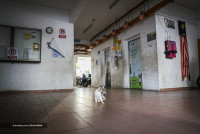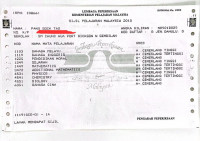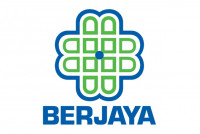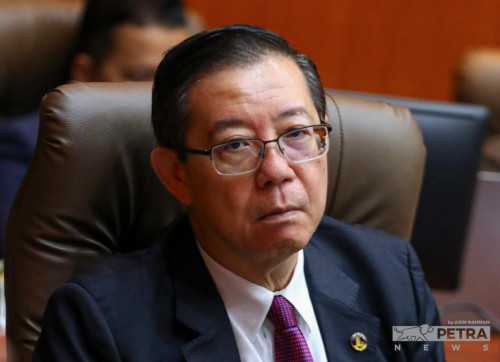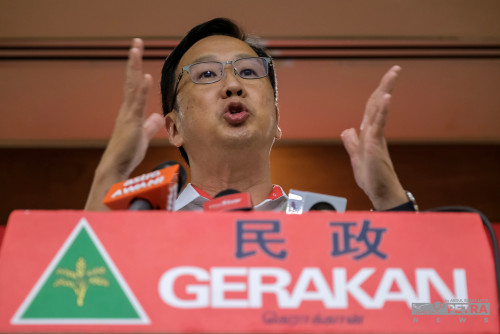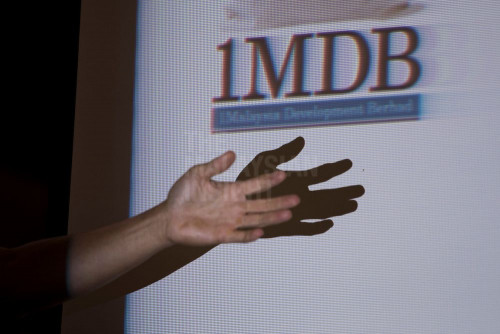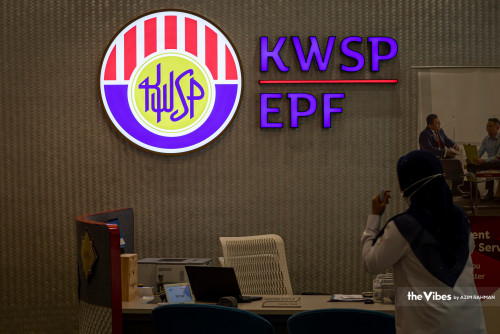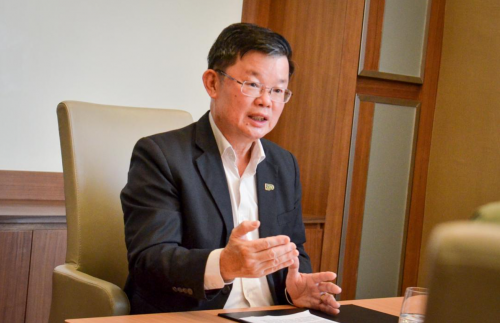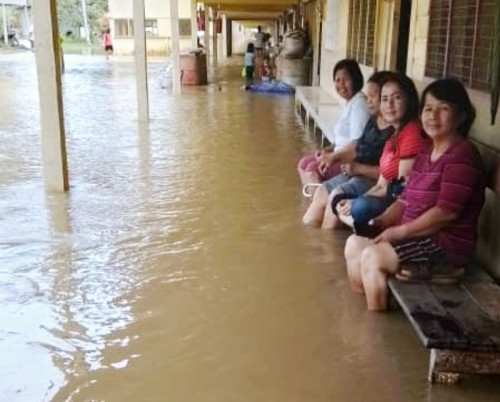THE People’s Housing Programme, or Program Perumahan Rakyat, (PPR) social housing concept has evolved from the public housing idea introduced in the 1970s by the government.
Back then it was aimed at solving the issue of squatters resulting from increased rural-urban migration.
But, throughout the years, PPRs are seen as ‘poor housing for the poor’ with unsuitable living conditions.
To create a liveable PPR community and improve well-being, Khazanah Nasional is leading concerted actions with affiliates Khazanah Research Institute (KRI), Yayasan Hasanah (Hasanah) and Think City to address the gaps which are prevalent within social housing in Malaysia.
This will be carried out through policy recommendations, community empowerment and placemaking solutions.
Khazanah’s managing director Datuk Amirul Feisal Wan Zahir said, “Our objective at Khazanah is the continuous creation of societal value for the nation, which plays a key role in our Advancing Malaysia strategy as we forge ahead to deliver a sustainable future.

"In achieving this, social marginalisation must be addressed for us to enjoy a positive future together, and among those requiring immediate attention are the PPR communities.
"Together with our affiliates, we are committed to delivering impactful initiatives for the benefit of these communities.
“We applaud the announcement by Prime Minister Datuk Seri Anwar Ibrahim of an additional allocation of RM35 million for community empowerment programmes for public housing communities in Selangor and Kuala Lumpur.
"The allocation will benefit 50,000 residents through the Kita-Untuk-Kita (K2K) programme, spearheaded by Think City.”
The synergies across the Khazanah entities further strengthen its role as a sovereign wealth fund in addressing key issues which impact the rakyat.
Khazanah Research Institute: A public policy study on Program Perumahan Rakyat
KRI conducted a survey from 2016 to 2017 for its report, Decent Shelter For The Urban Poor: A Study of Program Perumahan Rakyat (PPR), published last month, with the participation of 3,878 households from five PPRs in Kuala Lumpur and Penang.
The study found that while PPR complexes have successfully provided shelter for the urban poor, these complexes are fast becoming urban slums.
Also, a significant proportion of households, not just the poor, will need social housing if prices become untenable.
The study also sets a policy framework for social housing to become a management responsibility for governments, with social improvement objectives that include proper filtering of households and maintenance of social housing units.
The report provides policy options to enable households to move from social renting to private renting and eventually achieve home ownership.
Under this framework, there is a case to be made for social housing to be classified as transition housing. But there needs to be an institutionalised pathway for eligible households to ‘graduate’ into the market sector.
The full report is available at www.krinstitute.org.

Khazanah Research Institute chairman Tan Sri Nor Mohamed Yakcop, said, “Although the provision of PPR social housing is considered a solution to provide the poor with better living conditions compared to squatter settlements, this has created a new problem which is ‘outdated and poor quality housing for the poor’, especially in stratified buildings.
"This creates a negative impact on the well-being of the population.
"Hence the policy recommendations include a focus on the quality of social housing, the role of government in maintaining adequate social housing schemes as well as the impact of social housing provision on the private housing market.”
The report also underlines action plans to be taken to address shortcomings affecting the PPR programme. This includes a review of the social housing policy and addressing longstanding defects of the private market.
Thus, addressing the issue where homes have become severely unaffordable for a majority of Malaysians.
Yayasan Hasanah: community-based approach
In addressing the issue of poverty among PPR communities, Yayasan Hasanah’s community-based approach (CBA) seeks to address multidimensional issues in low-income communities.
It involved multiple organisations to create a coordinated, holistic, and sustainable impact.
One such impactful initiative is the collaboration between Hasanah and seven social impact partners at PPR Lembah Subang.
This has resulted in the increase of income for 241 residents, training and mentoring benefiting 381 individuals, nutritional and mental health support for 700 lives, as well as the development of 17 community leaders.
Trustee and managing director at Yayasan Hasanah, Datuk Shahira Ahmed Bazari said, “Core to Yayasan Hasanah’s CBA model is the understanding that poverty is multifaceted and reflects more than a deficiency of income and resources.
"It encompasses economic, social, cultural, deprivations and is inherently interwoven with poor understanding of fundamental human rights.
"Sustained efforts towards community development recognise that people experience poverty differently in their daily lives," she said.
As such, Hasanah believes in empowering communities through interventions directed towards individuals, households as well as the community, said Shahira.
Hasanah, through its core partner Women of Will’s (WoW), works with community leaders to identify needs, and collaborates with other partners to address them.
One such partner is Me.reka, a social enterprise that provides digital skills training and employment for youths.
In another collaborative effort, Khazanah, Hasanah and Think City have initiated a procurement programme of products produced by selected PPR communities. This will allow these communities to earn extra income for the upcoming Aidilfitri celebration.
The products will be distributed to the stakeholders and communities related to the three entities.
The initiatives by Khazanah and its affiliates are set to provide further momentum and support for the Government’s efforts to improve the lives of the PPR communities.
This will be done through policies and programmes that provide socioeconomic benefits and enhanced well-being for the rakyat.
Think City: K2K initiative
K2K is a ground-up programme that seeks to improve the lives of public housing communities.
Think City leverages the collective expertise of its networks and partnerships to design and put in place programmes to solve social, economic and physical challenges.
Think City has expanded the K2K programme across the Klang Valley. It aims to enhance support to public housing communities and building management in four critical areas.
These are community empowerment, public housing co-management, improved income generation and policy reform.
Over the last decade, Think City has worked on improving Malaysian cities across diverse areas for all urban residents, especially the most vulnerable members of society.
Think City has conducted research and intervention programmes surrounding public housing and residential communities in Malaysia.
It started with community housing at George Town, Penang and has since then evolved to expand to projects in Kuala Lumpur and Selangor.
Managing director of Think City, Hamdan Abdul Majeed, said, “In line with Malaysia Madani, K2K promotes collective action for a more inclusive, resilient and prosperous public housing communities."
He added that there needs to be shared responsibility to achieve more equitable outcomes aligned with the needs of the communities.
The initiative will also be strengthened by an Intergovernmental Committee that will involve various public and private stakeholders. It will help to speed up coordination and implementation to benefit public housing communities. – The Vibes, April 19, 2023




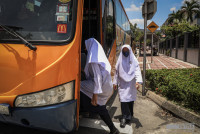
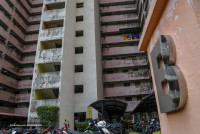
-Ian_pic.jpg)
